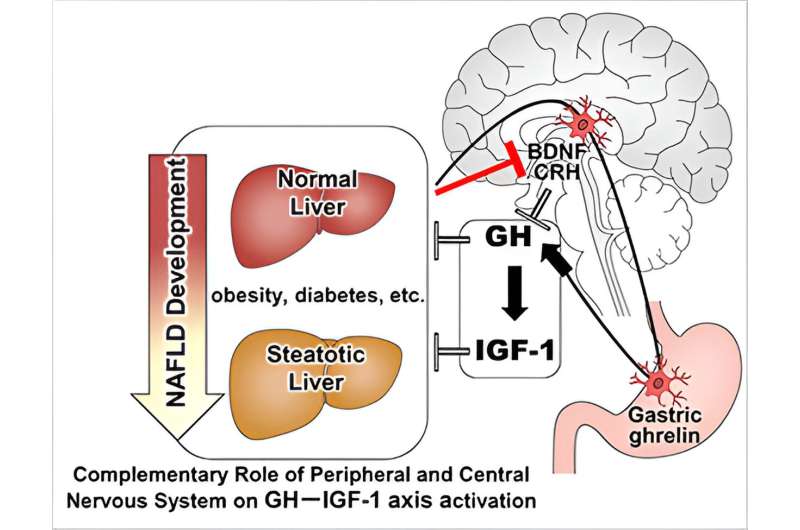Graphical abstract. Credit: Hepatology International (2023). DOI: 10.1007/s12072-023-10601-1
Various factors including obesity, diabetes, etc. are related to the etiology of steatotic liver disease (SLD) including metabolic dysfunction-associated steatotic liver disease (MASLD) etiology and resulted in the complications in various organs. As the number of patients with SLD is increasing worldwide, it is essential to elucidate the pathological conditions and develop effective treatment methods.
The research group led by Professor Kamimura Kenya (Department of General Medicine, Niigata University School of Medicine/Division of Gastroenterology and Hepatology, Graduate School of Medical and Dental Sciences, Niigata University), Nagayama Itsuo (graduate student) and Professor Terai Shuji in the same division have clarified that the dynamics of brain peptides are involved in the pathology of MASLD.
Research results:
- MASLD is a disease that causes complications in various organs in the body; however, its exact etiology is unclear and there is no definitive treatment
- We have determined that the autonomic neural pathway that connects the liver, brain, and intestines is involved in the onset and progression of MASLD.
- We have discovered that Ghrelin secreted from the stomach activates the growth hormone (GH) release from the pituitary gland through neural signal transduction, and growth hormone in the bloodstream induces insulin-like growth factor 1 (IGF-1) secretion from the hepatocytes, which suppresses the MASLD progression.
- We revealed that brain peptides activate GH–IGF-1 axis to prevent the progression of the early stages of MASLD pathology.
The findings are published in the journal Hepatology International.
More information: Itsuo Nagayama et al, Complementary role of peripheral and central autonomic nervous system on insulin-like growth factor-1 activation to prevent fatty liver disease, Hepatology International (2023). DOI: 10.1007/s12072-023-10601-1
Provided by Niigata University
























